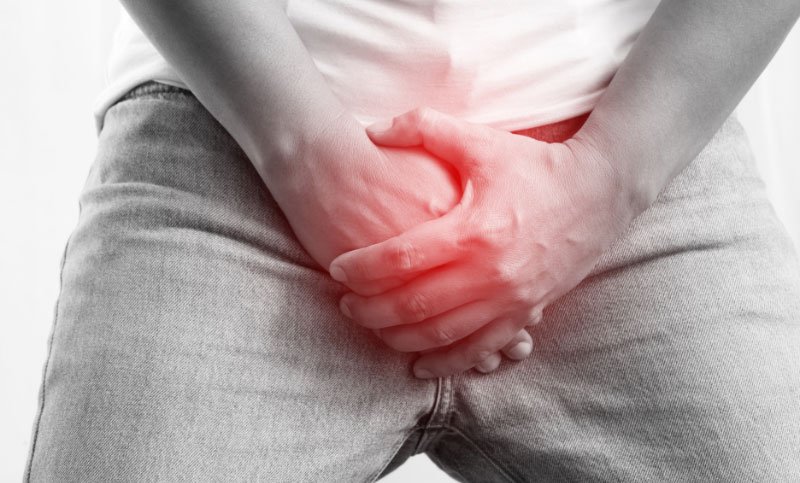The testis and scrotum, integral components of the male reproductive system, are susceptible to various acute conditions that can pose serious health risks. Timely diagnosis and treatment are crucial to prevent complications, including fertility issues and life-threatening infections. This blog highlights common acute conditions of the testis and scrotum, their causes, symptoms, and treatment options.
1. Testicular Torsion
Overview:
Testicular torsion occurs when the spermatic cord twists, cutting off the blood supply to the testicle. It is a medical emergency that primarily affects adolescents but can occur at any age.
Symptoms:
- Sudden, severe scrotal pain
- Swelling of the affected testicle
- Nausea and vomiting
- Abnormal testicular positioning
Diagnosis and Treatment:
- Doppler Ultrasound: Confirms reduced blood flow.
- Surgical Intervention: Detorsion and orchiopexy (fixation of the testicle) must be performed within 6 hours to save the testis.
2. Epididymitis
Overview:
Epididymitis is the inflammation of the epididymis, commonly caused by bacterial infections, including sexually transmitted infections (STIs) like Chlamydia or gonorrhea.
Symptoms:
- Gradual onset of scrotal pain
- Swelling and tenderness of the epididymis
- Fever and chills
- Painful urination or urethral discharge
Diagnosis and Treatment:
- Urinalysis and Culture: To identify the causative organism.
- Antibiotics: Tailored to the infection.
- Supportive Care: Includes scrotal elevation and analgesics.
3. Orchitis
Overview:
Orchitis refers to testicular inflammation, often due to viral infections like mumps or bacterial spread from epididymitis.
Symptoms:
- Swollen, tender testicle
- High fever and malaise
- Pain radiating to the groin
- Scrotal redness
Diagnosis and Treatment:
- Clinical Examination: Coupled with ultrasound if needed.
- Treatment: Supportive care (pain relief, ice packs) and antibiotics if bacterial.
4. Scrotal Abscess
Overview:
A scrotal abscess is a localized collection of pus in the scrotal tissue, often resulting from untreated infections or trauma.
Symptoms:
- Painful, swollen lump in the scrotum
- Fever and signs of systemic infection
- Redness and warmth over the area
Diagnosis and Treatment:
- Ultrasound: To differentiate abscess from other masses.
- Surgical Drainage: Required to remove the pus. Antibiotics are given post-drainage.
5. Fournier’s Gangrene
Overview:
Fournier’s gangrene is a rare but life-threatening necrotizing fasciitis of the scrotum and perineum, usually caused by mixed bacterial infections.
Symptoms:
- Severe pain and swelling
- Black or necrotic skin patches
- Foul-smelling discharge
- Fever and signs of sepsis
Diagnosis and Treatment:
- Imaging (CT or MRI): To assess the extent of tissue involvement.
- Aggressive Surgical Debridement: Combined with broad-spectrum antibiotics.
6. Hydrocele and Hematocele
Overview:
- Hydrocele: Accumulation of fluid around the testicle, often following trauma or infection.
- Hematocele: Collection of blood within the scrotal sac, typically after trauma.
Symptoms:
- Swelling of the scrotum
- Discomfort or heaviness
- Tenderness (in hematocele)
Diagnosis and Treatment:
- Ultrasound: To identify fluid or blood collection.
- Management: Aspiration or surgical repair may be needed for symptomatic cases.
7. Inguinal Hernia with Testicular Compromise
Overview:
An inguinal hernia occurs when abdominal contents protrude through the inguinal canal. If the hernia compresses the spermatic cord, it can cause acute scrotal pain and compromise blood flow to the testis.
Symptoms:
- Bulge in the groin extending to the scrotum
- Severe scrotal pain
- Nausea and vomiting
Diagnosis and Treatment:
- Clinical Examination: Often diagnostic.
- Surgical Repair: Emergency surgery is required if strangulation occurs.
Conclusion
Acute conditions of the testis and scrotum require prompt medical attention to prevent severe complications, including infertility and tissue necrosis. Awareness of symptoms and early medical consultation can make a critical difference. If you or someone you know experiences sudden scrotal pain or swelling, seek medical care immediately to ensure the best possible outcome.

